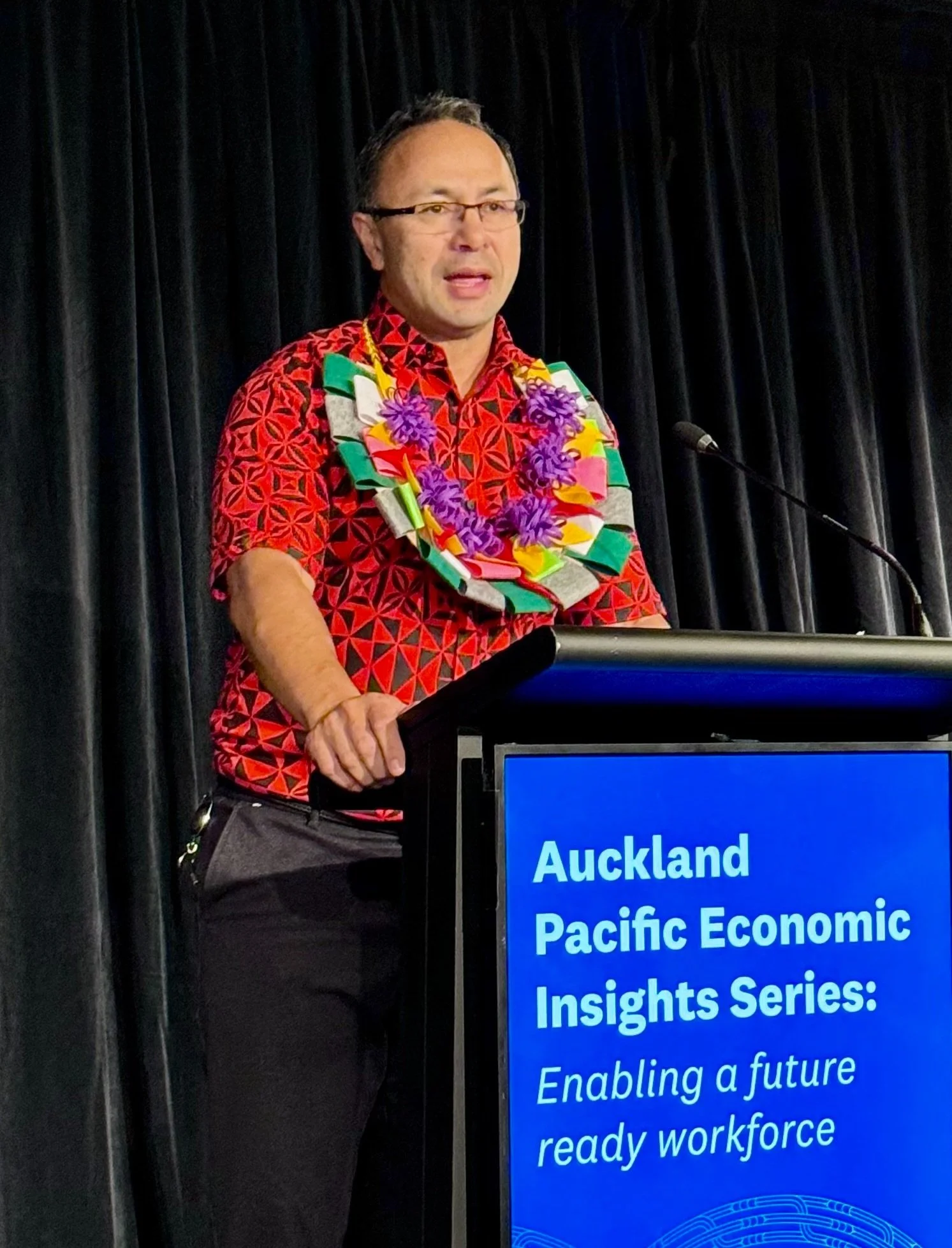Why we need to focus on the future economy
Insights from the inaugural Pacific Economic Insights Series
“Our collective goal should be raising our thinking and scale and focusing on the future economy”
- Professor Toeolesulusulu Damon Salesa
Have you ever attended a corporate breakfast where they serve panipopo? That's what greeted us, alongside a spread of delicious food, at the inaugural Auckland Pacific Economic Insights Series. From that moment, I knew this event was truly “by Pacific, for Pacific.”
But what exactly are “Pacific Economic Insights”? When I think of an economy, I use the Wellbeing Economy Alliance’s definition. They describe the economy as ‘how we produce and provide for one another’. Many see it as something fixed and unchangeable, but it isn’t. The systems, rules, and social norms that shape our economy were created by people and they can be changed by people too.
So, if we think of the Pacific economy this way, what are the values, norms, and stories that define how Pacific people produce and care for each other?
At this event, we learned about how collaboration and collectivism among organisations play a key role in fostering a thriving Pacific workforce. No single organisation holds all the answers. A great example is the Alo Vaka Pacific Skills Shift partnership. It brings together the central government, local government, The Cause Collective, and Uptempo to help shape a productive and flourishing Pacific workforce.
Data shared from the Ministry for Pacific Peoples was how youthful and fast-growing the Pacific population is in Aotearoa, especially in Auckland.
With 62% of Pacific peoples living in the city, it’s natural that Auckland is a focal point for Pacific economic development, but also underscores how Pasifika are our future leaders, business owners, and governors and whether employers are ready to enable this generation.
The talk that resonated most was by Professor Damon Salesa, who emphasised the importance of education and lifelong learning. He argued that our collective goal shouldn’t be just about building a workforce - it should be about expanding the size and scale of our aspirations. His vision centers on entrepreneurship and innovation that looks toward the future economy. Professor Salesa also pointed out that inequality isn’t just an outcome; it’s a design feature of the current system, which means we need to take a different approach and pursue a different kind of success.
A recent blog by Oyster Workshop, highlighting Māori and Pacific entrepreneurs, echoed Professor Salesa’s ideas. Pacific entrepreneurs face more challenges than the mainstream, lacking the same access to finance, networks, and opportunities. But for Pacific entrepreneurs, success is about more than just profit; it’s about supporting family, community, and cultural sustainability and while it may take longer, business provides multiple outcomes (or as I like to call it business with polypact).
So, as we think about the stories that define our Pacific economy, an important question remains: are they being heard, and who’s listening?
A special fa’afetai lava to Sarah Leo, Pacific Partnerships at Tātaki Auckland for the invitation to this inspiring event.

